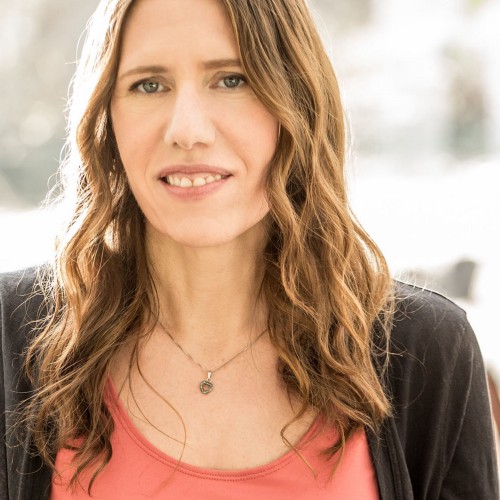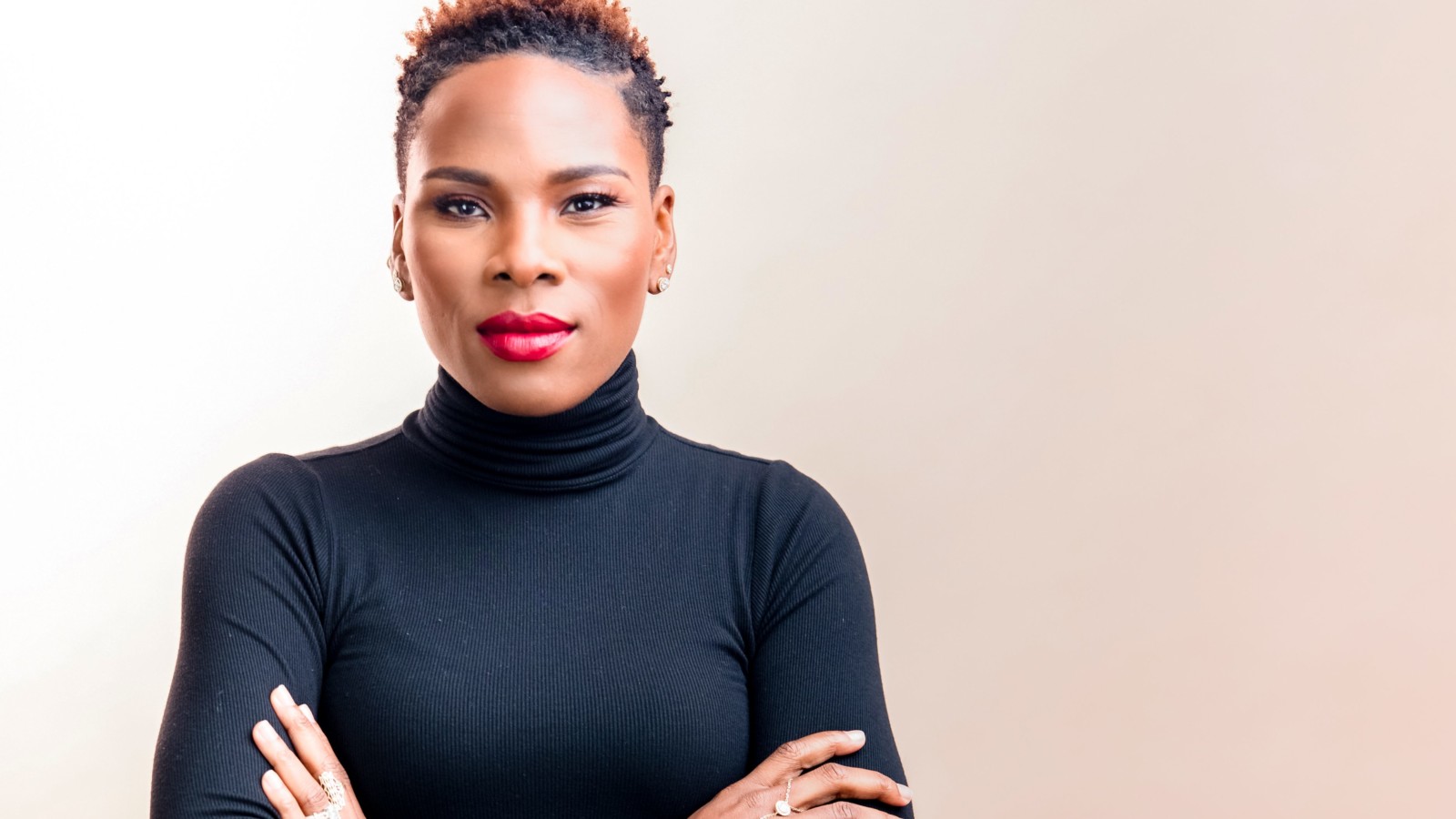Luvvie Ajayi Jones, the New York Times bestselling author, podcast host, and speaker whose book Professional Troublemaker: The Fear-Fighter Manual has just been released in paperback, has a different take on the way we typically think about New Year’s resolutions. In my recent interview with her, she told me, “I don’t do New Year’s resolutions because I’m always like, ‘The 1st of January, a magic wand does not wave that makes me all of a sudden want to start new things.’ Everybody says ‘New Year, New You,’ but I think it’s ‘New Year, True You.’ Honestly just double-down on what you were doing that was good, and then if you have habits that you don’t like, you can resolve to stop them. I don’t make a bunch of bullet points that tell me to become a new person. That’s how you set yourself up for failure. Your job is not to become a new person in the new year–just enhance what you’ve been doing that’s great.”
According to Luvvie, becoming truer versions of ourselves is a “revolutionary act” that involves pushing past our comfort zones, speaking up, and not allowing fear to stop us from pursuing our dreams and doing what we feel is right. These things have “tangible impacts on our day-to-day lives, professionally and personally,” she says.
Here are five of Luvvie’s powerful life philosophies and calls to action from our interview that will help you be a “truer you” and help set you up for a great 2022 and beyond.
Be a “Professional Troublemaker”
To be a professional troublemaker is to be a disruptor, somebody who is committed to doing or saying what’s hard. I think about the late great John Lewis who said, “Always be ready to make necessary good trouble,” and that’s what professional troublemakers do. They’re not contrarians; they’re not trolls. There are people who are like, “There are things to fix in this world, and I want to help fix it.” So ultimately, we’re going to constantly have to do things that scare us. We’re going to have to constantly push past our comfort zones, whether it’s in a room where we know we’re the only low and dissenting voice or at a meeting where you have to say, “I don’t really love that idea,” or at the dinner table with your family and somebody makes a joke that’s not appropriate. You are going to have to constantly push past the fear that tells you to be quiet or to not ask for that thing that you really care about. For us to live the audacious lives that we want, we’re going to have to make some really good trouble and that’s going to come with us doing things that scare us over and over again.
Choose Courage
My personal relationship with overcoming fear is a constant life habit. My journey, my testimony as a speaker, as a writer, as a human being, is these moments where I have been afraid of doing or saying something, and I did it anyway and was rewarded for it. And there are a few times when I’ve been punished for it. I think courage is a life habit that you choose. You cannot have courage in the absence of fear. My relationship with it is, every single day, when I show up to say something that feels hard on that day, I’m choosing to be courageous. I didn’t just wake up and say, “My personality is courage.” No, nobody’s born with a courage gene. It is something that you make a choice for every day.
And I’m not an expert. I call myself a guide because I speak from my experience about how my life has been transformed because of my insistence on constantly doing scary things. And I’m hoping that it shows people what’s actually possible for them, especially for me as a Black woman. I’m on two margins, so I do know that the stakes are often higher for me, but I say, if I can do it even with the stakes that are high, then I’m hoping other people will say, “Yes, I can also do it.”
When we allow ourselves to be complacent, when we allow fear to stop us from doing or saying key things, it absolutely reverberates through our lives. Being afraid will stop us from asking for a raise when we know we’ve earned it, it’ll stop us from even negotiating our salary when we’re given our first offer, which is an economic justice issue. If we don’t speak up in a room where somebody is being treated terribly, it could be a social justice issue. If we are not speaking up as we’re watching the world crumble, it’s a systems-of-oppression issue. So all of these have tangible impacts on our day-to-day lives, professionally and personally. We can’t leave it behind.
Give Yourself Permission to Fail
I don’t think failure is real unless you fell flat on your face and learned nothing from it. I think we’re so afraid of failure, as in we’re afraid of being humiliated, disappointed. We’re afraid of looking stupid or looking like we don’t know what we’re doing, so then we don’t take risks. We don’t do things that feel big. We’ll stay in these little boxes because we’re like, “In the box, I know I won’t fail.” But in the box, you’re actually failing because you’re not growing; you’re stuck there.
So we have to give ourselves permission to fail. We have to give ourselves permission to not always get it right. We live in a world where white men take big risks. Not because they’re braver than us. Not because they’re smarter than us. It’s because they have safety nets that tell them that failure is temporary. The rest of us don’t feel like we have the safety nets, so then we don’t do it. And it’s also because of the system that’s been built.
When we start giving ourselves the permission to fail, we’re really giving ourselves permission to do big things and just see what happens from it. I’ve had major fails. In the moment when you fall flat on your face, when you might feel humiliated, it does feel tough, it is painful, it’s not fun, but usually on the other side of it, you will have learned something more. You will learn something you probably shouldn’t do or something you should do better. You will learn something that is necessary for your journey to continue. And I think failure is typically that point–it’s a learning moment, and it’s required. For you to be somebody of note, of impact, in this world, you’re going to have to fail at least one time. Nobody who is somebody of note can say, “I’ve never failed.”
Be Too Much
To be too much, so many of us have heard this about different things about ourselves–you’re too loud, you’re too mouthy, you’re too tall–these are things about us that are core to who we are. So when the world weaponizes it against us, we think our job is to find a way to diminish that thing or fix it, even though it’s not to be fixed. It is your superpower. When we were little, many of us were told, “You talk too much,” well, now I’m a professional speaker. That “too muchness,” had I let it make me quiet, imagine what the world would be missing out on. Imagine the impact. Imagine how I wouldn’t be walking in my purpose. So many times we hear that we are too something and we go thinking we have to fix it. And it’s not for us to fix–it’s for us to double-down on. As long as it’s not harming somebody personally or professionally, that thing that somebody’s criticizing you for, it’s probably the thing that holds the key to what you’re supposed to be doing. I just want to give us full permission to be too much.
I think being yourself is a revolutionary act because of the fact that we’re being pressured to fit into boxes that the world wants us to fit into. We’re being pressured to doubt ourselves, especially women. The world thrives when we are constantly questioning ourselves and how good we are and our worth and our value. So when we can actually say, “I’m going to be this person,” it is something that is impactful; it’s changemaking.
Focus on Community
We are all each other’s business. That’s what I hope we can achieve in this world–where we feel convicted about each other’s well-being and we operate with that. I think it’s really important for us to start thinking about the collective, as we’re thinking about the individual. In what ways am I adding to the dumpster fire of the world? In what ways am I helping to fix it? Imagine if we were all a little bit more selfless.
My call to action is that we all exist as the people that we want to live with. If we all operate in this world as somebody that we would want to be in close community with, we might operate better, which means we need to show up for each other more. I consider community business all of our business. If one person is sick, we should all care. If one person’s house is on fire, we should all call 911. Instead of constantly passing the baton to other people to do the work, I think we need to feel convicted to do it ourselves. And if everybody feels convicted, our culture becomes more collective. The United States especially is an individualistic country. And I think what we’re seeing right now is what happens when everybody thinks, “I am for myself,” and nothing more. If I put myself on the line, it’s with the hope that somebody else will see that and do the same. If I speak up, it’s with the hope that it’ll give somebody else courage to speak up. Usually we’re waiting for that one person to start the thing, but what happens if we all go, “I’m going to be the one that starts the thing.”? It would be transformative for us.
You can find out more about Luvvie’s book Professional Troublemaker: The Fear-Fighter Manual and her other projects and platforms at www.luvvie.org.


